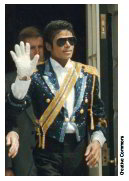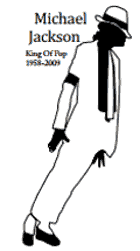Texto para as questões 01 e 02 sobre Phrasal Verbs and False Cognates:

Ain’t no sunshine
[Spoken Intro:]
You ever want something
That you know you shouldn’t have
The more you know you shouldn’t have it,
The more you want it
And then one day you get it,
It’s so good too
But it’s just like my girl
When she’s around me
I just feel so good, so good
But right now I just feel cold, so cold
Right down to my bones
‘Cause ooh…
Ain’t no sunshine when she’s gone
It’s not warm when she’s away
Ain’t no sunshine when she’s gone
And she’s always gone too long
Anytime she goes away
[…]
Composition: Bill Withers
Questão 01. O trecho anterior, retirado de uma canção interpretada por Michael Jackson, tem como tema:
A) a paz entre os povos.
B) o amor por uma garota que se foi.
C) o apelo ao perdão.
D) um amor não correspondido.
E) um caso de amor correspondido.
Questão 02. Phrasal Verbs and False Cognates: O fragmento “Ain’t no sunshine when she’s gone […]” pode ser interpretado como:
A) Não existe Sol quando ela se vai.
B) A vida fica triste quando ela está longe.
C) O mundo é melhor quando ela não está por perto.
D) O Sol brilha toda vez que ela se vai.
E) O Sol brilha mais forte quando ela não está presente.
Texto para as questões 03 e 08 sobre Phrasal Verbs and False Cognates:
UEMG–2010

American superstar Michael Jackson was born in Gary, Indiana on August 29, 1958 and entertained audiences nearly his entire life. A musical prodigy, Michael’s singing and dancing talents were amazingly mature and he soon became the dominant voice and focus of The Jackson 5.
As The Jackson 5, they became a cutting-edge example of black crossover artists. “You basically had five working- lass black boys with Afros and bell bottoms, and they really didn’t have to trade any of that stuff in order to become mainstream stars. Young Michael Jackson was the first black ‘bubblegum teen star’. He became one of the first African-Americans to be a global icon”, said Mark Anthony Neal, a professor of black popular culture at Duke University’s Department of African and African-American Studies.
Solo success for Michael was inevitable, and by the 1980s he had become infinitely more popular than his brotherly group. Record sales consistently orbited, culminating in the biggest-selling album of all time, Thriller, in 1982. From his precocious abilities as a young singer in The Jackson 5 to his legendary “moon-walk” dance, Jackson continued as a pioneer in the black culture when he broke barriers by appearing on MTV and had much better luck with elaborate music videos.
The former president of CBS Records, Walter Yetnikoff, remembered with scorn that MTV would not play “Billie Jean” or “Beat It” because it billed itself as a rock station. Michael Jackson co-wrote with Lionel Richie, “We Are the World,” a 1985 charity single that raised an estimated $50 million for famine relief in Africa, ushered in Live Aid and the era of celebrity philanthropy. Michael Jackson was the supreme showman who had an unrivalled knack of grabbing headlines.
Michael Jackson made culture accept a person of color way before Tiger Woods, way before Oprah Winfrey, way before Barack Obama. Michael did with music what they later did in sports and in politics and in television.
And no controversy will erase the historic impact. He also influenced a new generation of black musicians, including Usher, Ne-Yo and Kanye West.
Jackson’s changing physical appearance in the past two decades led to criticism that he was trying to be less black. But during a 1993 interview with Oprah Winfrey, Jackson shot down rumors that he was dying his skin to make it lighter. He told the talk show host that he had vitiligo, a disorder that destroyed his skin pigmentation.
Total worldwide sales of more than 350 million records over his 40-year career give just a hint of the adoration there was for the “King of Pop”. On June 25, 2009, with his sudden death at age 50 of a cardiac arrest just as he was just coming out of a four-year reclusive period and rehearsing for a sold-out London concert in July seems uncommonly cruel and tragic. Millions of dedicated fans will remember where they were “the day Michael died” and he will be remembered as a musical hero – but also a man with human flaws.
CNN.com and The Internet Movie Database.com. (Adapted).
Questão 03. All the statements below refer to Michael Jackson’s life, EXCEPT:
A) He was an amazing singer and dancer.
B) He changed his physical appearance in the past two decades.
C) He was afraid of himself.
D) He entertained audiences nearly his entire life.
Questão 04. In “[…] they became a cutting-edge example of black crossover artists”, the expression cutting-edge means that;
A) The Jackson 5’s music style was considered to be old-fashioned in the music business.
B) The Jackson 5’s music style was considered to be a vanguard in the music business.
C) The Jackson 5’s music style was considered to be blocking other black artists’ music style.
D) The Jackson 5’s music style was considered to be imitating other music styles.
Questão 05. In the sentence “Record sales consistently orbited, culminating in the biggest-selling album of all time, Thriller, in 1982,” the biggest is:
A) a comparative.
B) a superlative.
C) an adverb.
D) none of the above.
Questão 06. According to CBS Records president Walter Yetnikoff, MTV would not play Michael Jackson’s “Billie Jean” and “Beat it” videos in the early 1980s at first, because:
A) the videos were considered too violent for the viewers.
B) the videos were not as elaborate as the other artists’ at the time.
C) Michael Jackson was too young for the MTV audience.
D) MTV was not promoted as a black music channel.
Questão 07. According to the text, in the 1990s there were rumors that he was dying his skin. The rumors were saying that:
A) he was killing his skin cells.
B) his skin cells were not functioning well.
C) he was changing the color of his skin.
D) he developed skin cancer.
Questão 08. The title “King of Pop” was given from Elizabeth Taylor to Michael Jackson. According to the text, King of Pop is a true nickname to Jackson due to:
A) the amount of records he has sold throughout the world so far.
B) the fact that he spent most of his life inside a castle.
C) the fact that England’s royal family was going to see his first show of the tour in London.
D) the title of his compilation CD released in 2008.
Questão 09 sobre Phrasal Verbs and False Cognates: (ITA-SP) Dadas as afirmações de que em português:
1. Exit pode significar sucesso.
2. Commodity pode significar comodidade.
3. Character pode significar personagem.
Constatamos que está(estão) CORRETA(S):
A) apenas a afirmação nº 1.
B) apenas a afirmação nº 2.
C) apenas a afirmação nº 3.
D) apenas as afirmações nos 1 e 2.
E) todas as afirmações.
🔵 >>> Veja também nossas outras listas de exercícios de Inglês.
Gabarito com as respostas do simulado com 09 exercícios de Língua Inglesa sobre Phrasal Verbs and False Cognates:
01. B;
02. B;
03. C;
04. B;
05. B;
06. D;
07. C;
08. A;
09. C
Doutorando em Genética e Biologia Molecular – UESC-BA
Mestre em Genética e Biologia Molecular – UESC-BA
Pós-Graduado em Metodologia do Ensino de Biologia e Química – FAEL
Licenciado em Ciências Biologias – IFMT/Campus Juína
